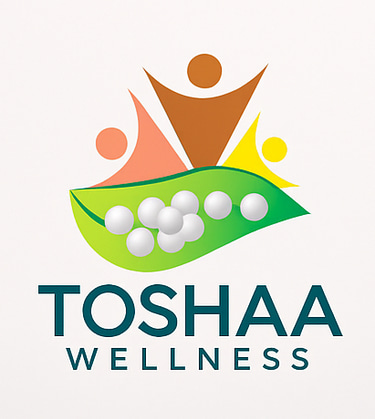The Placebo Problem: A Closer Look at Homeopathy


🌀 The Placebo Problem: Why Homeopathy Deserves a Closer Look
For centuries, homeopathy has been quietly yet steadily restoring health, not just in the body but in the whole person. And yet, one of the most persistent criticisms it faces is: “It’s just a placebo.” As a homeopath who has walked with hundreds of patients through their healing journeys, I feel compelled to explore this claim more deeply—and invite you to look a little closer.
❓ What Is the “Placebo Effect,” Really?
In conventional medicine, a placebo is an inactive substance that can still produce real, observable improvements in symptoms. These improvements are attributed to the patient’s belief in the treatment rather than the treatment itself.
But here’s where things get interesting. If belief alone can spark healing in the body—changes in blood pressure, mood, immune function—isn’t that worth investigating?
In other words, the placebo effect isn’t just “nothing.” It is the evidence of the mind-body connection at work. And that is precisely the domain homeopathy has always worked within.
🧬 Homeopathy: A System That Goes Beyond Symptoms
Homeopathy is a complete, holistic system of medicine founded over 200 years ago by Dr. Samuel Hahnemann. It is based on a simple yet profound principle:
“Like cures like.”
A substance that can cause certain symptoms in a healthy person can, in minute doses, stimulate the body to heal those same symptoms in a sick person.
But here’s what makes homeopathy truly different:
We don’t treat the disease; we treat the person who has the disease.
That means we go beyond pathology to explore emotional states, stress patterns, personality traits, and subtle imbalances in vitality. And we match the remedy to the individual—not just the illness.
Is this the sort of approach that could be dismissed by merely labeling it a “placebo”?
👶 Children, Animals & the Placebo Paradox
Let’s consider one of the most compelling arguments against the placebo claim:
Infants
Animals
Unconscious or mentally impaired individuals
These patients often respond remarkably well to homeopathy. I’ve treated teething babies, anxious pets, and elderly individuals with dementia who couldn’t possibly have “believed” in the remedy—and yet showed tangible improvements. How can this be explained by the placebo effect?
📊 Scientific Research: What the Critics Miss
While it’s true that homeopathy challenges conventional scientific frameworks, it’s important to recognize that absence of proof is not proof of absence.
There are numerous peer-reviewed studies and clinical trials that have shown homeopathy performing better than placebo. For example:
A 2005 systematic review published in The Lancet concluded that there was some evidence homeopathic remedies were more than placebos.
Observational studies in Europe have shown long-term, sustained improvements in patients with chronic illnesses using individualized homeopathy.
Research into the “nanostructures” present in ultra-diluted remedies is emerging, suggesting homeopathy may work on a quantum or bioenergetic level we have yet to fully understand.
We may not have all the tools to measure subtle energetic changes yet, but science is evolving—and catching up.
🌿 Healing Is More Than Chemistry
Modern medicine tends to view the body as a machine: identify the broken part, apply the fix. Homeopathy sees the body as a living, intelligent system—capable of self-healing when given the right stimulus.
So when a carefully chosen remedy catalyzes a deep, sustained healing process—physical, emotional, even spiritual—can we really dismiss that as mere suggestion?
🧠 The Real “Placebo Problem”
The real issue isn’t that homeopathy might involve the placebo effect—it’s that modern medicine often underestimates the power of the mind, belief, and consciousness in healing.
If anything, the placebo effect proves that healing is not just about chemicals or procedures—it’s about connection, intention, and resonance.
Homeopathy deserves a closer look not because it’s mystical, but because it dares to ask:
“What if healing is more intelligent, more individualized, and more profound than we ever imagined?”
🔍 In Closing
To those who say “homeopathy is just a placebo,” I say this: Look again. Look at the whole person who got better—not just the symptom that disappeared. Look at the child who stopped crying, the pet that calmed, the chronic condition that faded after years of struggle.
Look deeper. Healing is happening.
And homeopathy, quietly and compassionately, continues to be a part of it.
If you’re curious to explore homeopathy for yourself or a loved one, I invite you to connect. True healing begins when you feel seen, heard, and understood—not just as a diagnosis, but as a whole person. 🌱
